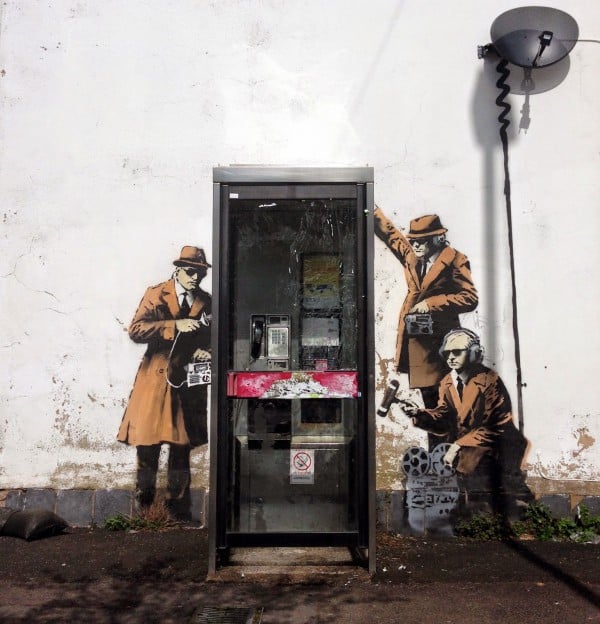
British graffiti artist Banksy has reacted with surprise after hearing that the building on which he painted his Spy Booth mural was granted protection by the local government, the Bristol Post reported.
In February, the Cheltenham Borough Council gave the artwork retrospective protection by including the mural in the building’s existing Grade II-listed status.
According to Complex Magazine, in Britain, a Grade II listing distinguishes a building with historical significance, so the mural cannot be removed or altered without permission (see Banksy’s Spy Booth Mural Cherished and Preserved in Cheltenham).
On his website, the artist responded to a question asking how he felt about his artwork being granted historical status by answering, “It’s surprising because when I did art at school I got an ‘ungraded,’” he said, revealing that he failed his art classes when he was younger.
Banksy’s Spy Booth mural appeared in the English town of Cheltenham last April. The piece is located three miles away from the government communications headquarters (GCHQ), and was inspired by Edward Snowden (see Banksy Confirms He Created “Spies” Artwork in Cheltenham).
Following its appearance, the mural was subjugated to several acts of vandalism, removal attempts, and an ownership dispute. (see Vandals Completely Deface Banksy’s Spy Booth, and Can Locals Save Snowden-Inspired Banksy, and Local Council Blocks Removal of Banksy Mural).
Banksy’s fame means his street art mostly attracts controversy in relation to ownership battles (see Palestinian Man Conned into Selling Banksy Mural for $175 Takes Legal Action).
The local community had been campaigning to keep the artwork, prompted by fears that it would be damaged or sold off.